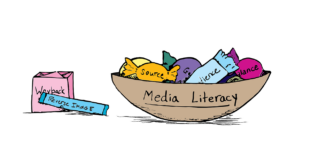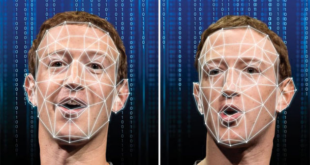Issue 38, Summer/Fall 2024 http://doi.org/10.70090/AMS.38.MGR1 Abstract Like the Persian Gulf War before it, the Russia-Ukraine war is happening in real-time on the ground, but also on social media. The reality seems undeniable. And yet, concerning Baudrillard’s definitions of simulacra and simulation, we have never been further from the reality of …
Read More »Book Review | Fake News in Digital Cultures
Issue 35, winter/spring 2023 https://doi.org/10.70090/FR23FNDC Fake News in Digital Cultures by Rob Cover, Ashleigh Haw, and Jay Daniel (2022), promises “a new approach to understanding disinformation and misinformation in contemporary digital communication.” Studying the digital world from a cultural perspective, the authors propose looking at fake news as a normal byproduct …
Read More »Using Media Literacy Training to Promote the Detection of False Information Online: A Quasi-Experimental Study (Arabic)
Issue 35, winter/spring 2023 https://doi.org/10.70090/AZ23UMLT Scroll down for Arabic abstract. This study seeks to develop a training program to detect false electronic content based on two learning styles (simultaneous and asynchronous), with the aim of revealing the effectiveness of training in a digital learning environment, and its impact on the …
Read More »The Effect of Media Literacy on Misinformation and Deep Fake Video Detection
Issue 35, winter/spring 2023 https://doi.org/10.70090/SM23EMLM Abstract Misinformation has become a major problem in virtually all societies. The emergence of deepfake AI technology has only exacerbated issues around misinformation and disinformation. One way to try to limit the negative effects of fake news and false information in a society is media …
Read More » Arab Media & Society The Arab Media Hub
Arab Media & Society The Arab Media Hub




